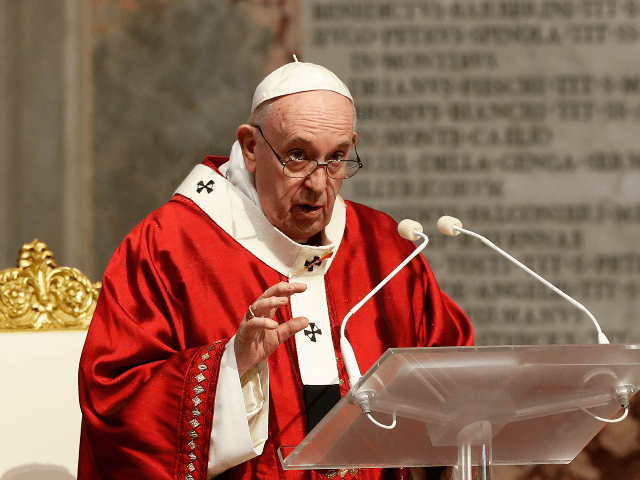ROME — Pope Francis urged Christians to take up their cross as Holy Week begins and resist the devil’s snares of discouragement and despair.
“We have begun Holy Week. For the second time we will live it within the context of the pandemic,” the pope said following his weekly Angelus prayer Sunday. “Last year we were more shaken up; this year it is more trying for us. And the economic crisis has become heavy.”
In the midst of these trials, which Satan tries to exploit to cause spiritual harm, we must unite to Christ’s passion, the pope proposed.
“In this historical and social situation, what is God doing?” he asked. “He takes up the cross. Jesus takes up the cross, that is, he takes on the evil that this situation entails, the physical and psychological evil — and above all the spiritual evil — because the Evil One is taking advantage of the crisis to disseminate distrust, desperation, and discord.”
“And us? What should we do?” he continued. “The one who shows us is the Virgin Mary, the Mother of Jesus, who is also his first disciple. She followed her Son. She took upon herself her own portion of suffering, of darkness, of confusion, and she walked the way of the passion keeping the lamp of faith lit in her heart.”
Holy Week, which commemorates the last week of Jesus’s life culminating in his passion and crucifixion, is the perfect time to unite our sufferings to His, Francis urged, and to assist those who struggle with their own crosses.
“With God’s grace, we too can make that journey,” he said. “And, along the daily way of the cross, we meet the faces of so many brothers and sisters in difficulty: let us not pass by, let us allow our hearts to be moved with compassion, and let us draw near.”
“When it happens, like the Cyrenian, we might think: ‘Why me?’ But then we will discover the gift that, without our own merit, has touched us,” he added, referring to Simon of Cyrene, whom Roman soliders forced to help Jesus carry his cross.
In his homily at Palm Sunday Mass, the pope offered a similar message, focusing on Christ’s love in the midst of suffering and betrayal.
“He experienced our deepest sorrows: failure, loss of everything, betrayal by a friend, even abandonment by God,” Francis reflected. “By experiencing in the flesh our deepest struggles and conflicts, he redeemed and transformed them.”
“His love draws close to our frailty; it touches the very things of which we are most ashamed,” he said. “Yet now we know that we are not alone: God is at our side in every affliction, in every fear; no evil, no sin will ever have the final word.”

COMMENTS
Please let us know if you're having issues with commenting.